
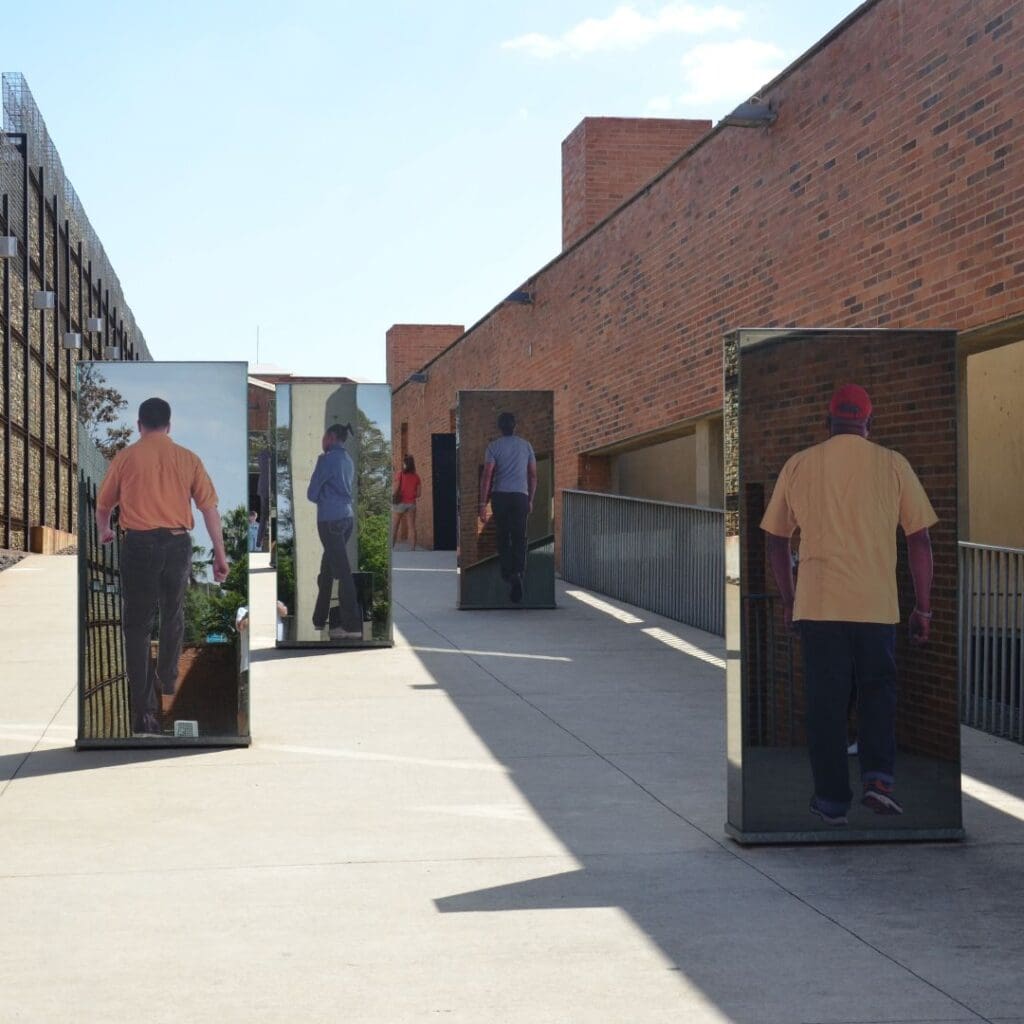
While this September marks Tourism Month in South Africa, it also marks Heritage Day on the 24th. It’s an opportunity reflect, but also to celebrate our rich history and our diverse country. Here are a few suggestions on how you can celebrate Tourism Month and Heritage Day this year.
South Africa – like most other countries worldwide – has had its fair share of conflicts. Over the last couple of years, the concept of memorial or heritage tourism has been growing steadily. With that comes the conventional bucket list travel experience – a journey back in time – paying homage to historical events. In a way, it helps us to remember the sacrifices of those who came before us.
Juan Maree, the Director of the Commonwealth War Graves Commission (CWGC) in South Africa says: “It offers travellers the opportunity to connect with the past, reflect on the lessons of history and gain insight into the human condition. It’s an incredible experience for anyone with an appreciation and interest in real life stories linked to heritage and history.”
Essentially, the CWGC works on behalf of the governments of Australia, Canada, India, New Zealand, the UK and South Africa to commemorate the 1.7 million men and women from the Commonwealth who lost their lives in the two World Wars. In South Africa, the CWGC maintains 10,625 South Africans’ graves at more than 600 locations across the country.
In addition to these memorial sites, it’s also worth exploring other destinations rich in history and heritage. South Africa is known for its history, cultural diversity and breathtaking landscapes – all worth exploring on a journey through time.
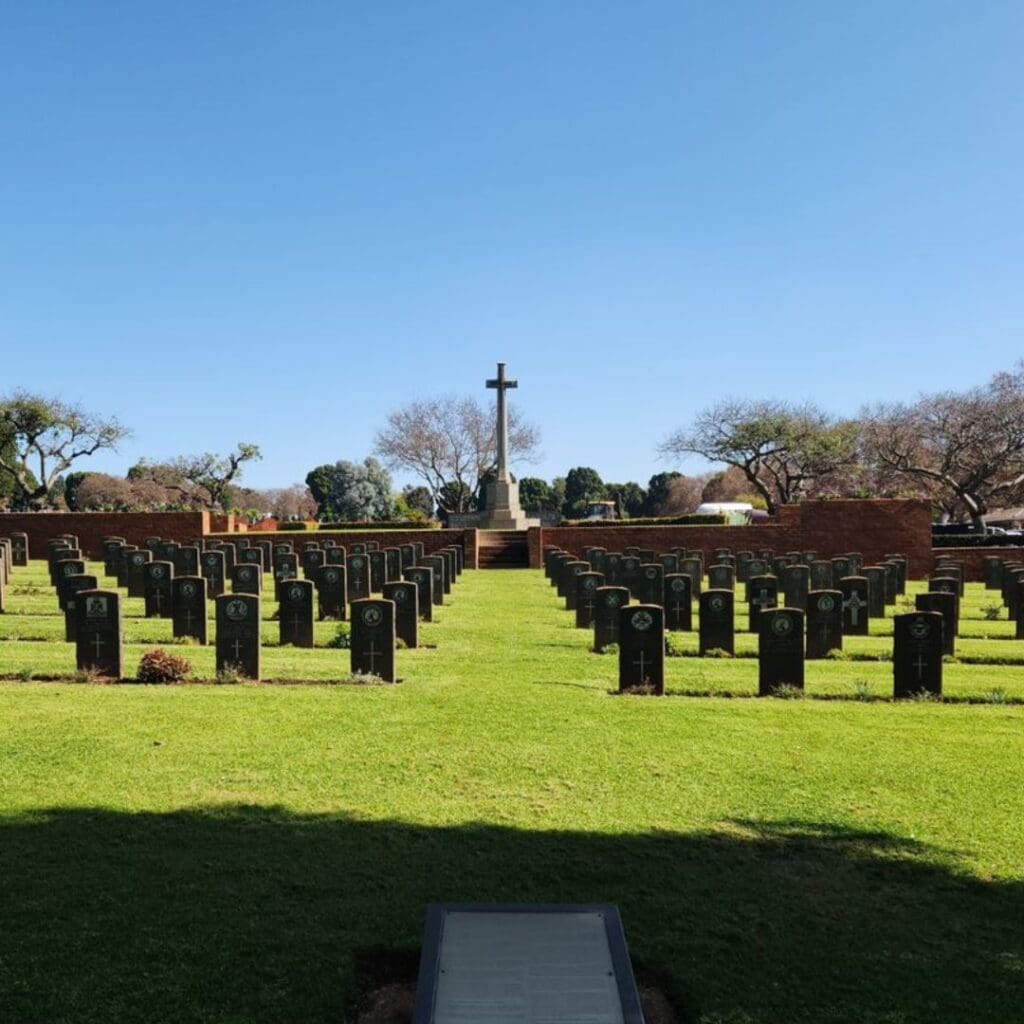
Just 10km from Joburg, you’ll find this remembrance site which is the resting place of 637 military servicemen and women.
There was a large military wing in the Johannesburg General Hospital and military hospitals at Baragwanath and Cottesloe during the Second World War. In fact, the Baragwanath hospital handled many casualties sent from the Middle East. Furthermore, flight training was conducted from the Baragwanath airfield and South Africa’s largest ammunition depot was located at Lenasia.
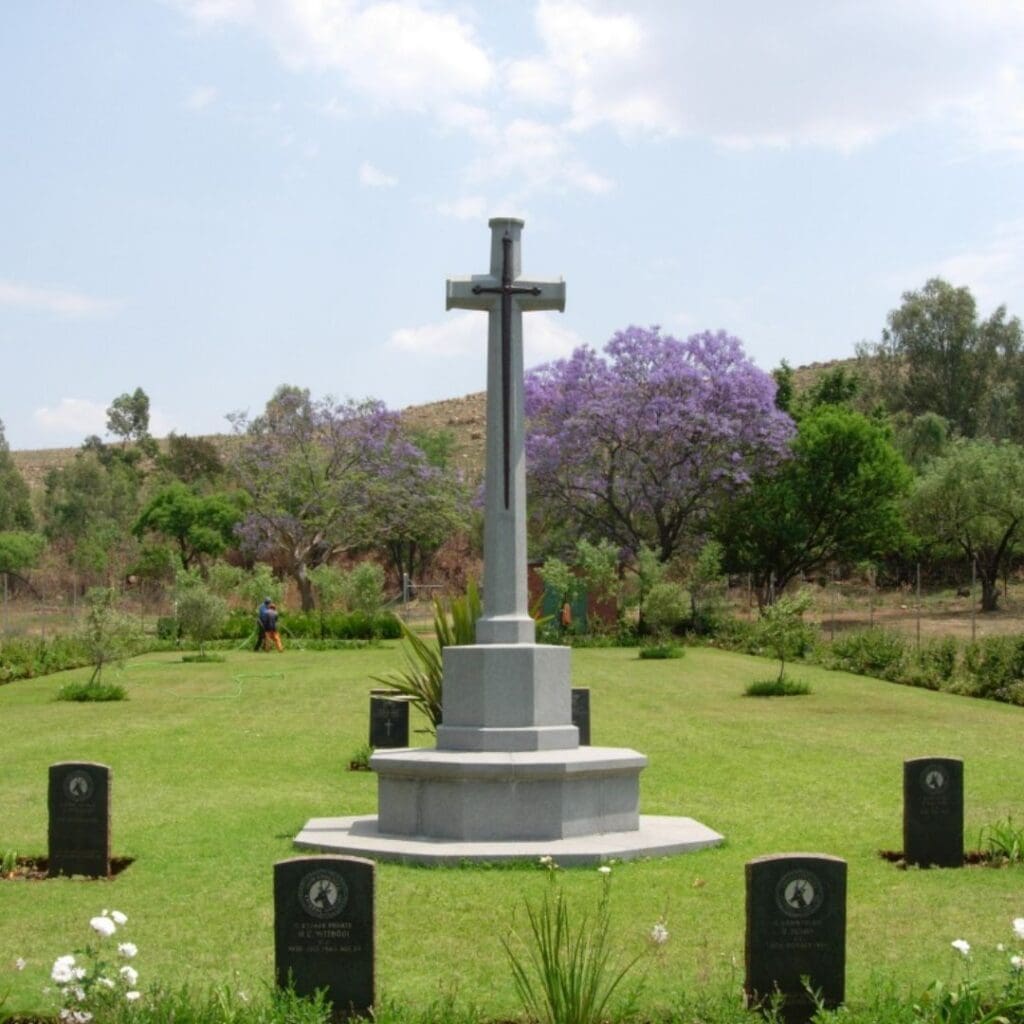
This cemetery houses the graves of 102 casualties of the Second World War. During the war, the Union Defence Force practically occupied the entire village. Cullinan, which served the Premier Diamond Mine, was the command structure for the adjoining Zonderwater troop concentration and training complex. It was midway through the war that the largest prisoner of war camp for Italians captured in East and North Africa was established at Zonderwater. Eventually, it became the site of a large Italian war cemetery, now located within the Zonderwater prison grounds.
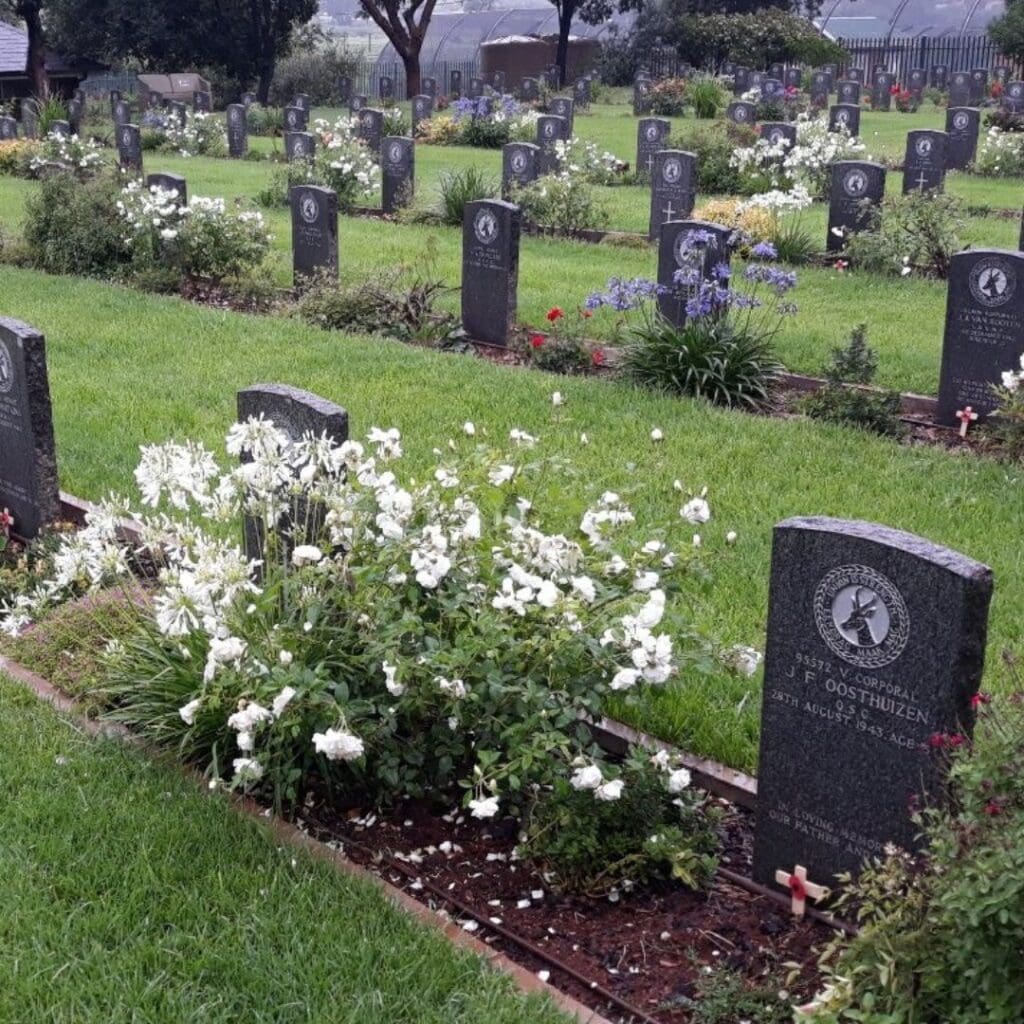
Tshwane has always been an important military town, still housing various Army, Air Force and Medical Service units and schools. The No. 110 Military General Hospital was operated in Voortrekkerhoogte during the Second World War. Thaba Tshwane (previously known as Voortrekkerhoogte) was established as a garrison town by the British after the Anglo Boer War. Eventually, the South African Department of Defence took it over after Union in 1910.
This museum is home to a comprehensive and moving journey through the country’s turbulent past. It tells the story of apartheid, the struggle for justice and the ultimate triumph of democracy.
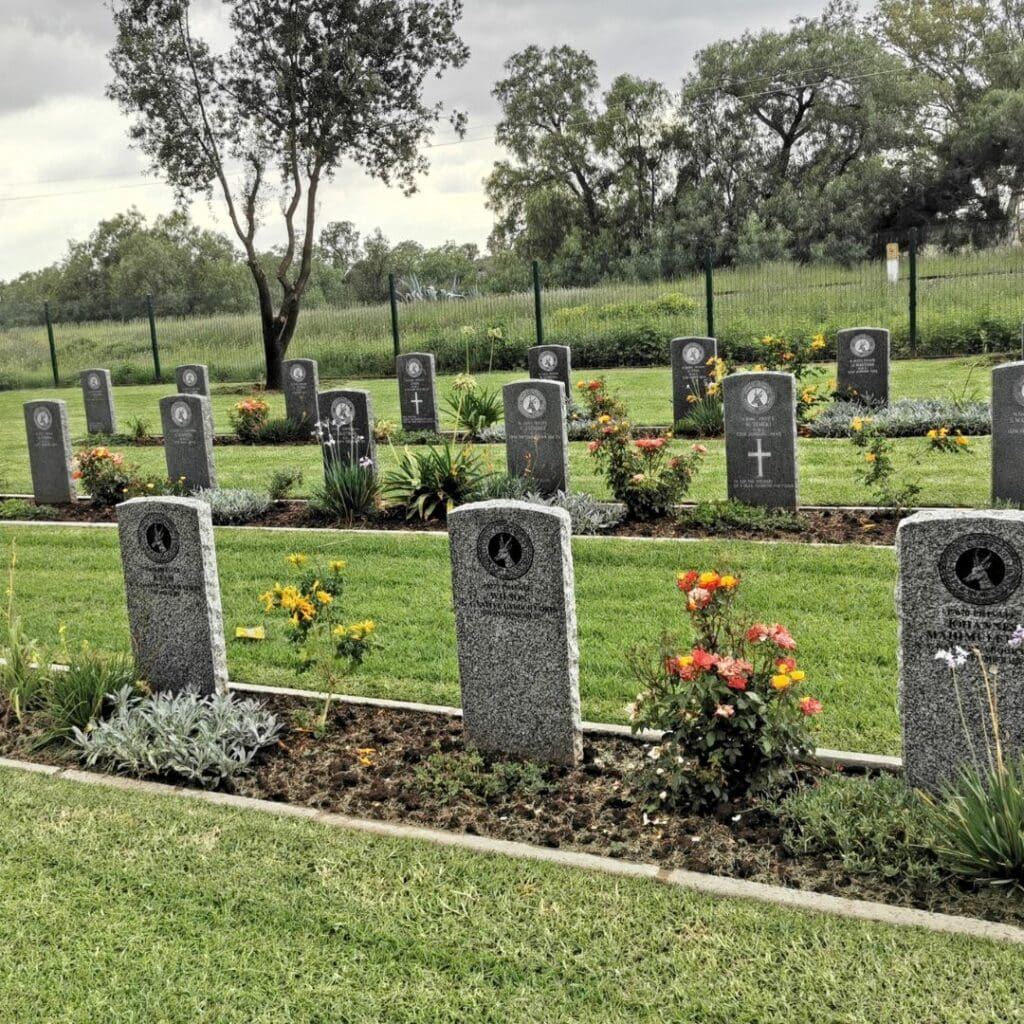
A military hospital was established in the Tempe Military Camp during the Second World War. The camp also housed the headquarters of the Orange Free State Command. Two air schools were also operated from the Bloemspruit Aerodrome close to the city. The Bloemfontein (Hamilton) War Cemetery has 62 Second World War graves, with 29 of them being that of South African Army personnel. These individuals were initially buried in the vast areas of the old non-European cemetery, which became unmaintainable. Eventually, their remains were brought to this cemetery in the 70s. In 2005, 11 First World War casualties’ graves were also brought here from the Rooidam Native Cemetery and an additional 10, whose graves could not be found, are now commemorated on special memorials here.
As with Cullinan, there is a mining element that makes Kimberley worth visiting and it’s called The Big Hole. This open-pit diamond mine was excavated by hand during the late 19th century and stands as a reminder of South Africa’s diamond mining industry. Here, you can explore the hole’s depths, learn about diamond mining and understand the impact it had on the country’s history.
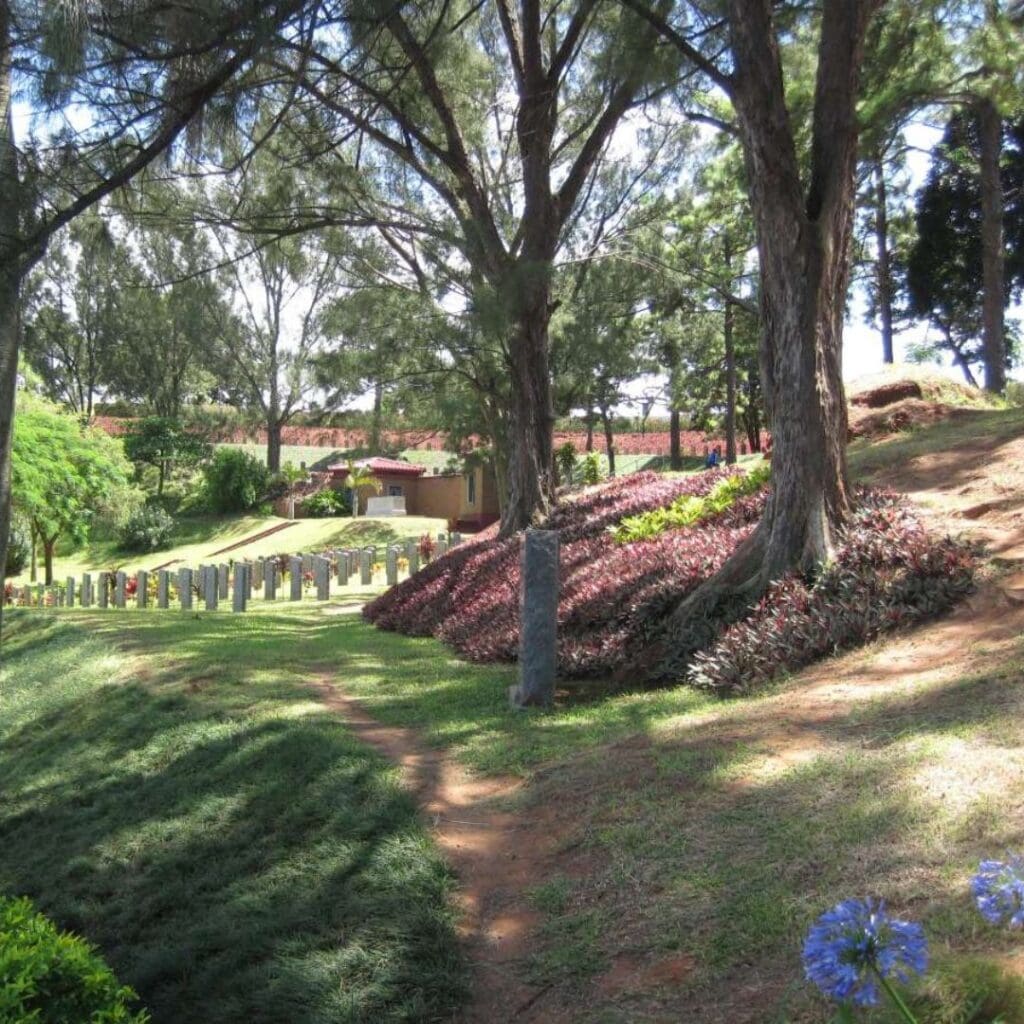
This Durban-based site marks the sacrifice of 706 military servicemen who lost their lives in both the First and Second World War. The port of Durban was a considerable hospital centre during the First World War. During the Second World War, Durban was also a key port for the East African and Abyssinian campaigns, and later also for those happening in the Middle East and Italy.
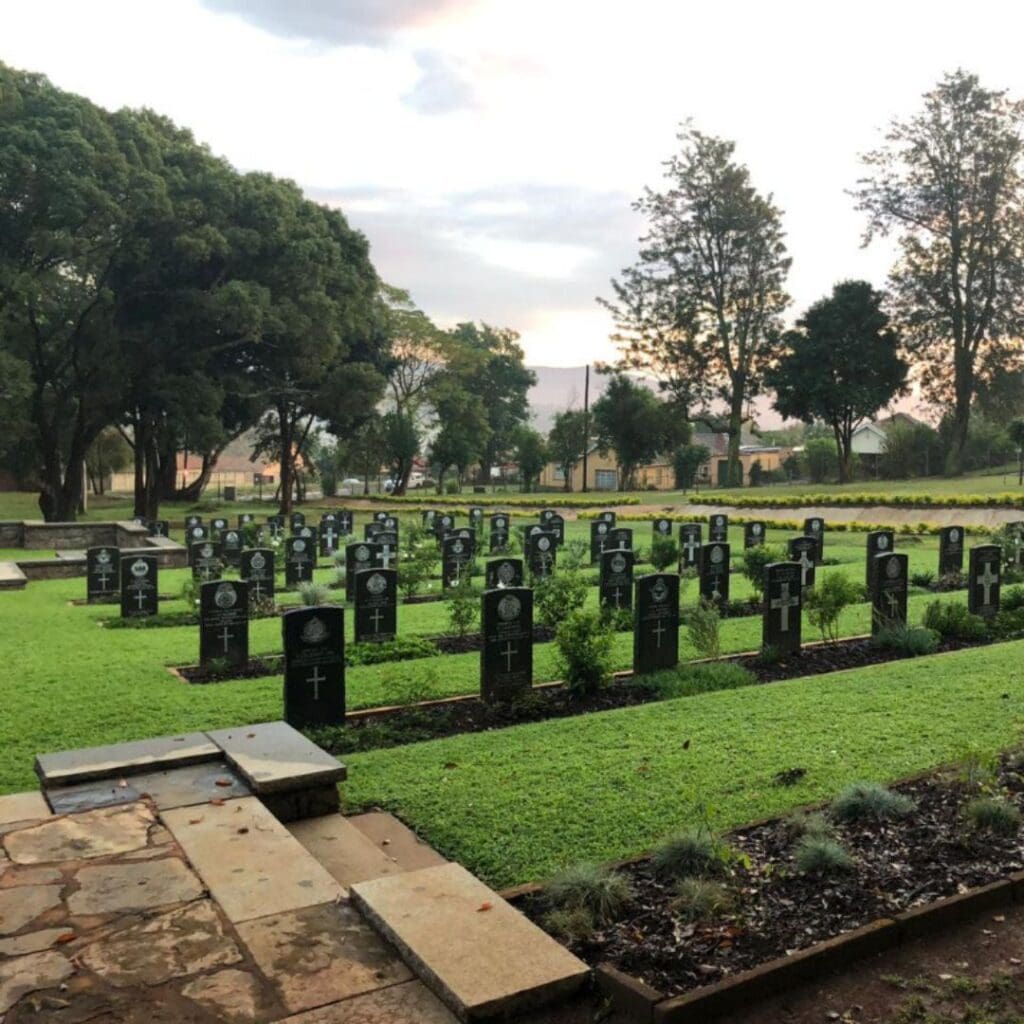
Based in Pietermaritzburg, this commemoration site is one of South Africa’s most significant CWGC sites, as well as an Anglo Boer War memorial. A large transit disposal camp was based in the Orbi area close to the city during the Second World War. It was served by the Oribi Military Hospital. This site contains 112 Commonwealth Second World War burials and one from the First World War. In addition, there are seven war graves of other nationalities, as well as one non-war burial in the CWGC’s care.
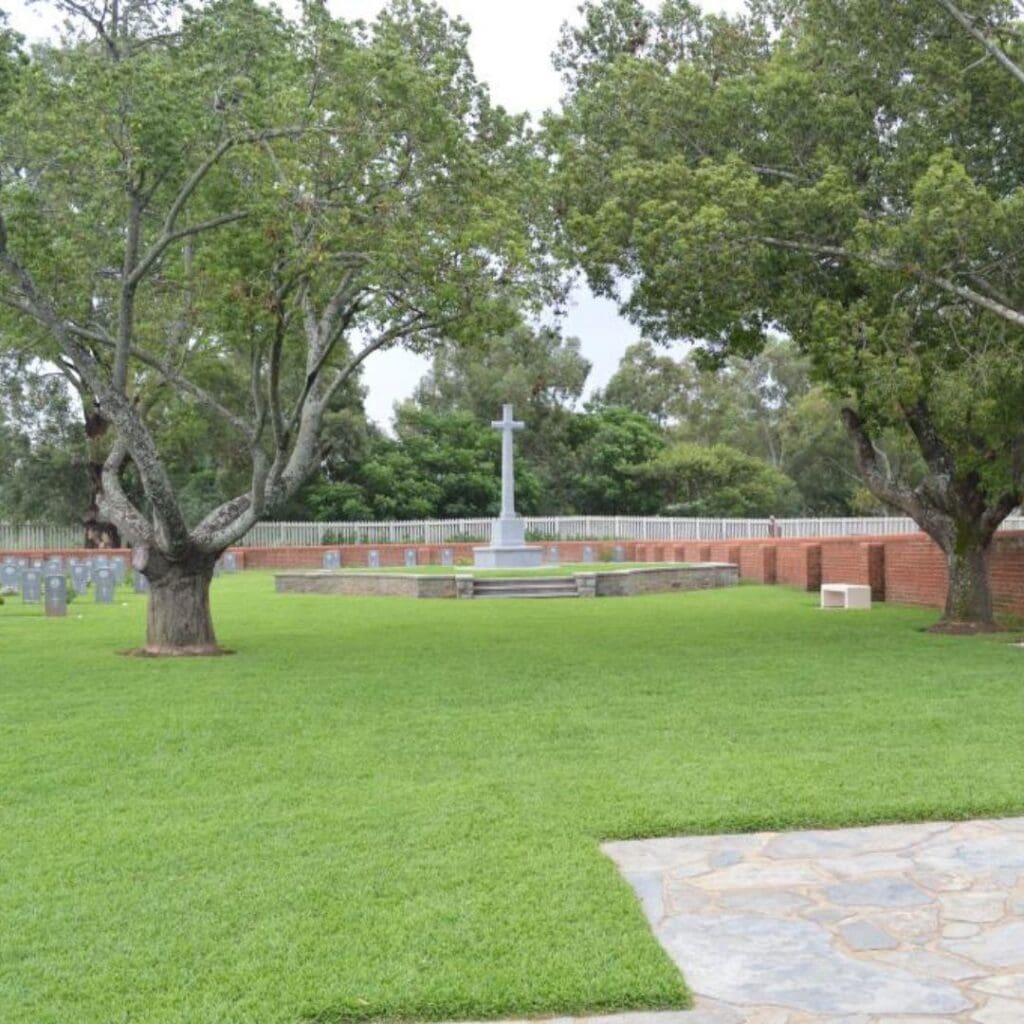
Here you will find two burials of the First World War and 181 from the Second World War. There is also the commemoration to a South African soldier, PINCKNEY who was killed when he fell down the Mont Aux Sources Escarpment in the Bergville District. His body could never be recovered.
KZN is home to various iconic battlefields that shaped South Africa’s history. These include sites like Isandlwana, Rorke’s Drift and the Battle of Blood River.
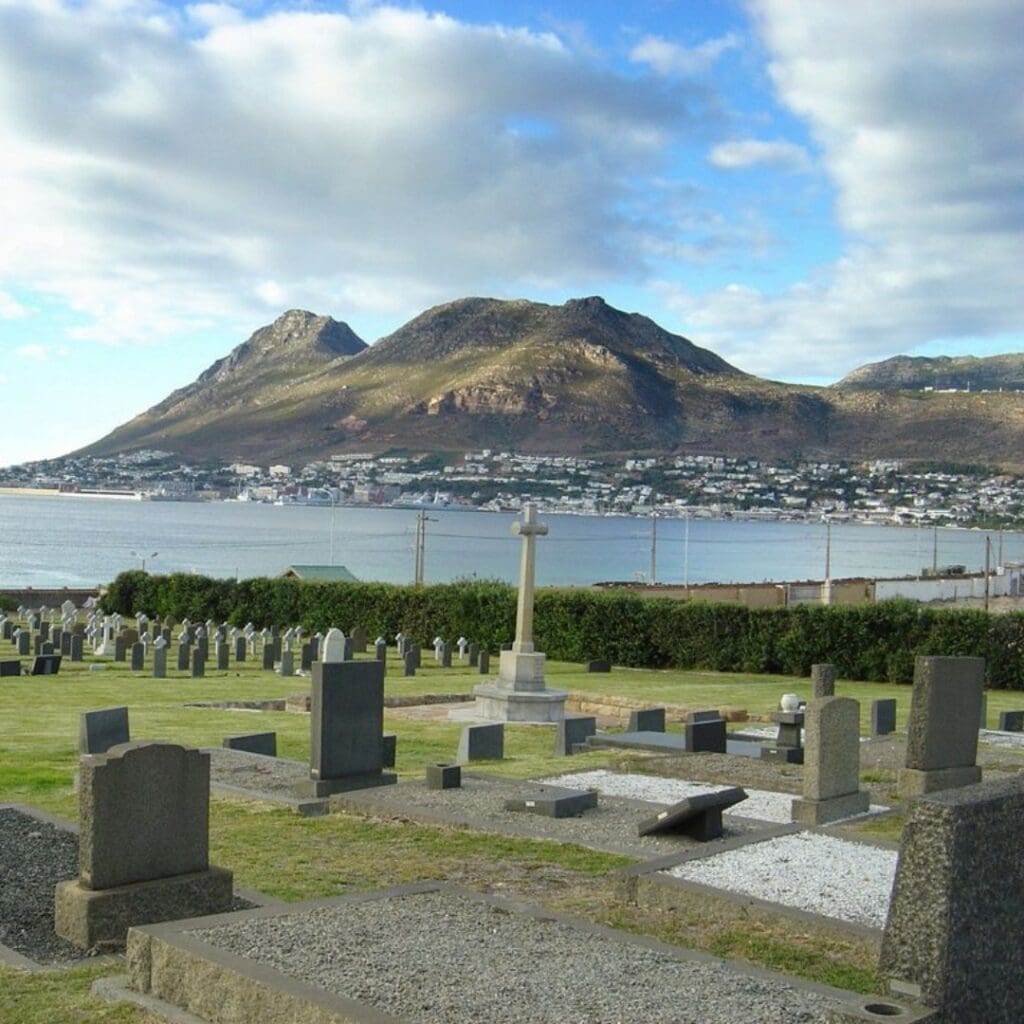
Simonstown is the home of South Africa’s Navy and the town saw very large shipping movements (including hospital ships) during both World Wars. Naval and maritime air operations were conducted from here during the Second World War. Most of those laid to rest here are naval personnel. The Cross of Sacrifice was also unveiled here on 5 January 1930 by Vice-Admiral R.M. Burmester, R.N.
The CWGC Memorial will also be completed in 2024. This site will honour black South African servicemen who served for labour regiments and perished in the First World War and whom, to date, have no known graves. The memorial will be located in Cape Town’s Company Gardens.
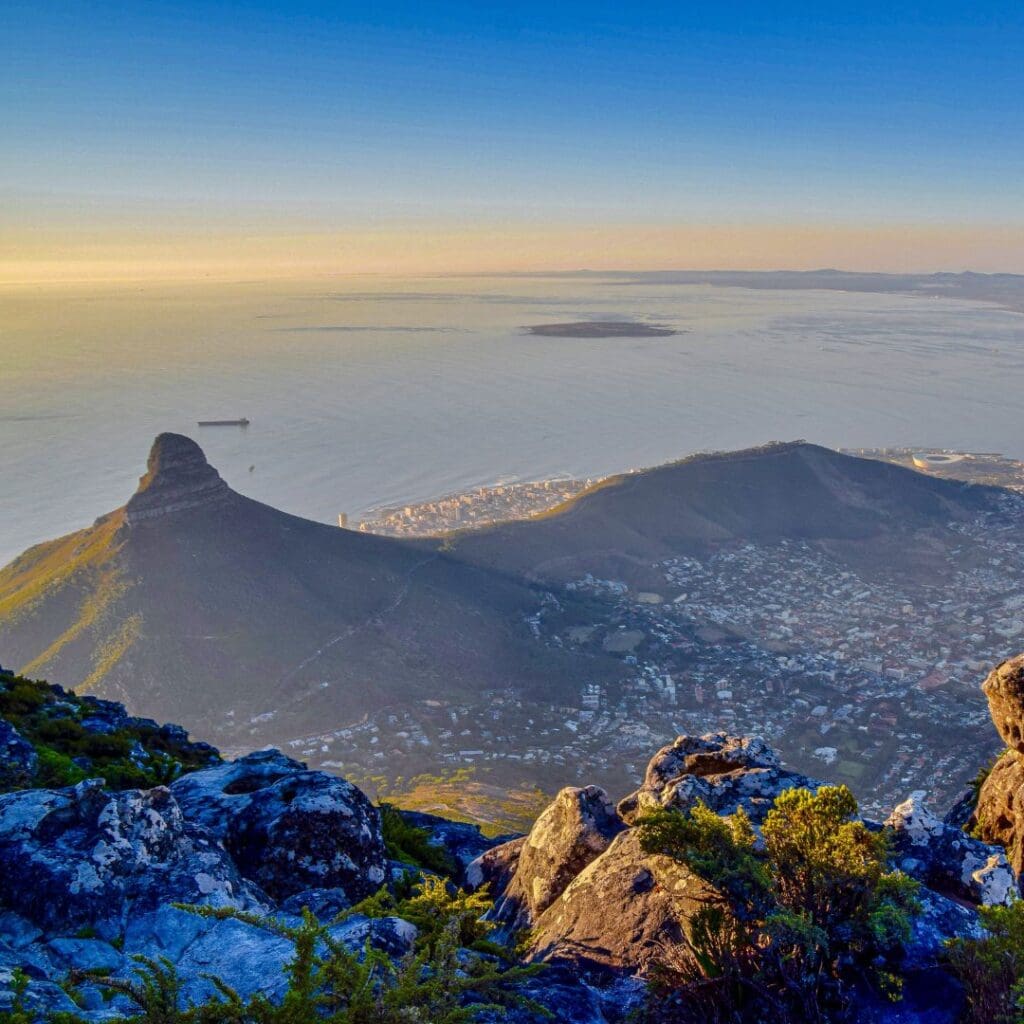
Located in Table Bay off the coast of Cape Town, this island serves as an iconic symbol of South Africa’s struggle for freedom and equality. It was once the notorious political prison where leaders like Nalson Mandela were held during apartheid. Staying at a hotel like the Protea by Marriott Hotel Cape Town Waterfront Breakwater Lodge, allows you easy access to the island. The hotel itself is housed in a historic 19th century building.
Mafikeng – the capital of the North-West province – is steeped in history and culture. Evidently, the Mafikeng Museum chronicles the region’s history, including its role during the Siege of Mafikeng and contributions to the struggle against apartheid. In addition, the Lotlamoreng Cultural Village offers an immersive experience of Setswana culture and history.
There are numerous places to visit where you can learn more about South Africa’s history, the wars our ancestors fought, the apartheid era and more. In addition to that, you can also explore the beauty and diversity of the country and its people.
Stay up-to-date on the hottest, hippest and most happening things to do in Mzansi!
